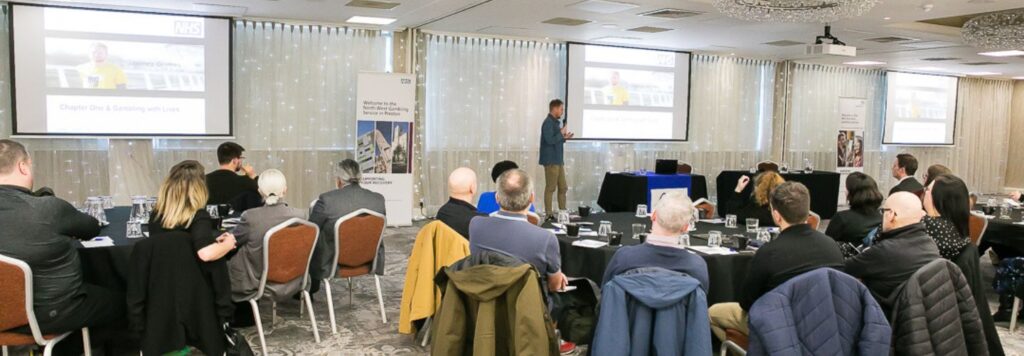Gambling plays role in hundreds of deaths every year, launch told
A new service for those harmed by gambling across Lancashire and South Cumbria has been unveiled with the grim warning that gambling kills.
‘NHS is picking up the tab of the online betting industry with a surge in suicidal gambling addicts turning up at NHS clinics’
At the launch of the new North West Gambling Service (NWGS), Dr Matt Gaskell, the head of the new organisation, said: “Gambling plays a role in hundreds of deaths every year.”
NWGS provides treatment for gambling problems as well as for those with mental and physical health conditions and those who may be at risk of suicide. It also offers a service to loved ones affected by someone else’s gambling.
It will see patients within two to four weeks. The new service covers a wide area from the Blackpool and Preston clinic, stretching from Blackpool and the Wyre north to Carlisle, south to Chorley, east to Blackburn and Burnley, and west to Blackpool.
Dr Gaskell, a consultant psychologist, says that gambling does not just harm a minority of so-called weak and vulnerable people. The majority are younger men, working and in a relationship, who gamble online. He stressed: “Football has a major gambling problem. Our clinics have many football fans.”
“There is also a rising number of women harmed as a consequence of targeted advertising and marketing, with a focus on encouraging highly addictive slot machine gambling. Between 25 and 30% of our service users are women, and I see this number continuing to rise, unfortunately.”
Dr Gaskell added: “The industry, which spends £1.5bn a year on advertising, has designed a perfect storm for addiction, and its business model appears to be reliant on those harmed and experiencing addiction. The NHS is picking up the tab of the online betting industry with evidence showing gamblers are significantly more likely to attempt suicide.”
According to the Gambling Commission, the UK gambling industry Is worth an estimated £15.1 billion, with overall participation in any gambling activity involving an estimated 44% of the adult population.
Professional services, including the NHS, mental health services, the justice system, debt counsellors, and Citizens Advice, heard about NWGS from Dr Gaskell at its launch in Preston on February 12. He is a national expert in gambling addiction and is the topic advisor for the NICE Guidelines for Harmful Gambling. While his expertise is in treatment, he has worked closely with the government to advocate for public health prevention policy and stricter regulation of gambling.
He said: “We are mass advertising and marketing an addictive product which could ensnare anyone at a given time. The source of the harm is the industry, its products and its thirst for profit over the wellbeing of its customers, as well as our undercooked laws and regulations.”

Other speakers at the launch included Lord Foster of Bath, a campaigner for gambling reform, Dr Sakthi Karunanithi, Director of Public Health for Lancashire County Council, and James Grimes, former gambler, a reform advocate, and Education Lead for the Charity Gambling with Lives.
Lord Foster of Bath, who appeared by video link, said: “Gambling companies use ever more sophisticated ways to persuade more people to gamble, those who’ve stopped to start again, and those already gambling to gamble more.
“As a result, we have a large number of people who suffer gambling harm (including a surprising number of children), an even greater number of people impacted by it, and tragically far too many gambling-related suicides.
“Despite this, we have far too little provision to prevent gambling harm and provide treatment for it.
“So this new clinic is an extremely welcome addition. And while the third sector can and does also provide treatment, I am pleased that this clinic shows how the NHS is increasingly acknowledging the role it can play in treating gambling harm.”
Dr Karunanithi said: “The financial and health odds are against the most vulnerable, and in some parts of Lancashire, people are really struggling. We need to get our act together and mobilise people in the public sector and all the other mainstream organisations and work in a non blame-making way. We need to have more open conversations between our services and communities.”
James Grimes added: “Gambling can be the root and trigger for suicide. The number of families affected is growing, which is sad. We support families in different ways – legal, therapeutic, campaigning for change, and prevention.”
Page last updated: 14th Feb 2024 2:02pm